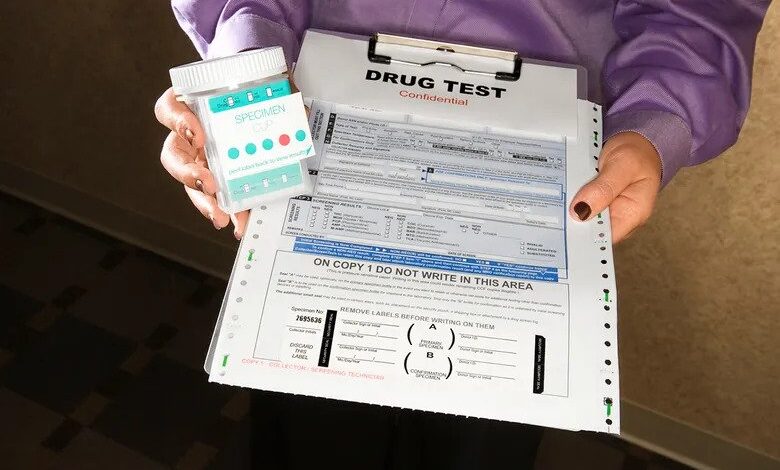Pre-Employment Drug Testing – How to Prepare and What to Expect

Pre-employment drug testing can be essential for companies that value employee safety. But there are many things to keep in mind before undergoing these tests.
Drug screenings usually involve providing a sample of urine, saliva, or blood. A hair, sweat, or breath sample may also be used in specific tests.
Know Your Rights
Drug testing is a standard procedure that many employers utilize to ensure a safe and healthy workplace. However, before taking a drug test, individuals must understand their rights and the company’s policy. Additionally, individuals should take steps to stay clean and avoid anything that could affect the results of their screening.
The most common type of drug test pre employment is a urine test, which typically involves providing a sample at a lab and then waiting one to three days for the results. Urinalysis can detect traces of drugs, such as marijuana, cocaine, amphetamines/methamphetamines, alcohol, and opioids, in the body even after their effects have worn off.
In addition to urine testing, some companies may use hair drug tests, which can provide a window into past drug usage for up to 90 days. This type of test does not determine current impairment, but it can show whether a person has used certain kinds of drugs in the past.
Other types of drug testing include random and blanket testing. Random testing involves randomly selecting employees to be tested and can be conducted regularly, such as monthly or quarterly. Blanket testing involves scheduling everyone in a department or the entire company to be tested annually, quarterly, or monthly. Small businesses must implement a robust drug testing program to mitigate risks, including absenteeism and workers’ compensation claims caused by a single errant employee.
Know the Company’s Policy
Employers must have a written drug testing policy and follow it in all cases, regardless of the circumstances. They must also be consistent in their testing procedure so all candidates are tested similarly. It is against the law for an employer to single out specific individuals or groups for drug screening tests. For example, they cannot try for sex or religion, and they must not discriminate against applicants with physical disabilities.
A good employer should be able to explain the reasons for their drug testing policies to all applicants. They will usually state that employees who use illegal drugs are less productive, more likely to miss work, and more likely to get involved in workplace accidents that could harm others. They will also state that a positive test result might affect employee wages, benefits, and job security.
Some companies will engage in blanket testing, where they will test all employees regularly, either on a pre-scheduled basis or on an as-needed basis. This is often done in safety-sensitive positions, and the employees are notified when they will be tested. They may be asked to consent to a test by signing a form before they start working. The company might withdraw its employment offer if it refuses to agree to a trial.
Know What to Expect
Most employers will tell potential employees they must pass a drug test before they can begin work. Additionally, the employer might explicitly state that acceptance of the job offer is conditioned on passing the screening. In the case of regulated industries, federal law requires that employees pass tests.
When a candidate takes a drug screening, they will likely be asked to provide a urine sample. Urine screens look for specific drugs in a person’s system, and they are the most common test for pre-employment and routine screenings. They are also used when a supervisor has reasonable suspicion that an employee is using drugs and alcohol on the job.
Some companies also use other types of tests. Blood testing is more accurate, but it is expensive and invasive. Saliva tests are less costly and more convenient, and they can detect drug use within minutes to hours. These tests are more commonly used for DOT-regulated and safety-sensitive jobs.
The most important thing for an employer to do is define their drug testing policy. They should describe which substances and drugs they will test for, how the results will be determined, and what happens if an employee or potential employee refuses a drug test. They should also specify what they will do with positive test results, whether that is referral to employee assistance programs or disciplinary action.
Know What to Do
Drug testing is an essential step for employers to take to ensure a safe and productive workplace. It can help mitigate the risk of employee absenteeism, workers’ compensation claims, and legal repercussions caused by one bad apple ruining an entire team’s morale.
Companies should make their written policy clear and readily available to employees and prospective hires. It should include the specific actions they intend to take if an employee or applicant returns a positive test result from the lab. This should also have a statement about providing assistance and support to employees who voluntarily seek treatment for substance abuse.
Most regulated jobs require that employees submit to drug screening before starting work. Typically, this requires an initial urine sample to be sent for confirmation testing. Some tests also include a saliva sample and can detect drugs like marijuana, amphetamines, cocaine, and opiates. Saliva testing is less invasive and has a shorter detection window (minutes to hours).
Avoiding certain foods and beverages is best if you’re scheduled to take a pre-employment or court-admissible drug test. These can cause false positives and lead to a delay in getting your results. Be sure to arrive on time for your appointment. Many testing facilities take a “first come, first serve” approach and will not hold your spot for too long if you’re late.



